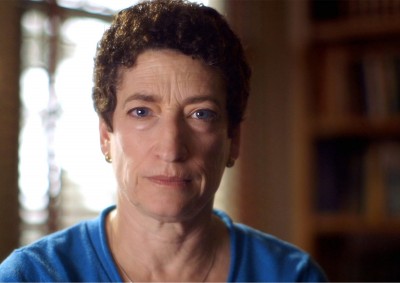
In some ways, “Merchants of Doubt” may be this decade’s heir to the climate change documentary throne, comfortably taking the place of its predecessor, former U.S. Vice President Al Gore’s “An Inconvenient Truth.”
But this film doesn’t force its audience to sit through yet another lecture about the dangers of climate change. Instead, “Merchants of Doubt” delves into the dark underbelly of the climate change controversy itself, focusing on a network of pseudo-scientists, politicians and corporations that have relied on misdirection and obfuscation to confuse the American public and discredit the general scientific consensus that the planet is, in fact, getting hotter.
“Merchants of Doubt” is based on a 2010 book written by Naomi Oreskes and Erik Conway. In the book, Oreskes and Conway reveal several parallels between today’s climate change debate and earlier environmental-based controversies involving tobacco, DDT, acid rain and the ozone layer hole. The common thread is — no surprise here — manufactured doubt.
“There is this network of people who have tried to discredit scientific evidence and create more controversy,” Oreskes told The Daily Free Press during a phone conference. “We very quickly realized that we had stumbled on a big story.”
Their story’s leap from page to screen was advanced by “Food, Inc.” director Robert Kenner, who translated the book’s research-heavy rhetoric into a visual story. Where the book relies on documents and records to make its case, the film presents its audience with montages of archival footage, a decision that successfully creates a visually interesting film that is also accessible to its audience. Oreskes herself plays a prominent role in the film as an interviewee.
“I think Robbie’s done an amazingly great job,” she said. “He’s made it feel very fresh, very interesting. I’m proud of what he’s done with our book.”
Oreskes said the idea for the book came from an experience she had after writing an article called “The Scientific Consensus on Climate Change,” published in Science magazine in 2004. It compiled evidence from hundreds of research papers, showing that all major scientific bodies in the United States agree that climate change is indeed a man-made phenomenon — and one with catastrophic implications.
It was a conclusion, Oreskes said, that not everyone was willing to accept. Soon after publication, she began receiving hate mail and threats from climate change skeptics. Despite meeting such a reaction, she said she understands where that bitterness comes from.
“The story of climate change is a bad news story,” Oreskes said. “It’s telling us that there’s a problem with how we run the government, how we run the economy, how we live. It’s a very hard pill to swallow.”
“Merchants of Doubt” also suggests that climate change denial is not always the result of ignorance. Many prominent climate change denouncers accept that the scientific data is accurate, but their opposition to environmental legislation is rooted in anti-communism and free market ideology.
Panic about a communist insurrection in the U.S. government may seem pretty far-fetched, but climate change deniers’ concerns about government involvement aren’t necessarily unfounded. In fact, Oreskes admitted that government intervention will need to be key in combating the effects of climate change on the planet, effects that have already taken a very serious, irreversible toll. The more severe the problem becomes, the more extreme the solution will have to be.
“The profound irony of the situation is that the people who thought they were protecting us from government intervention have now made it unavoidable,” Oreskes said. “These are market failures, so they need market remedies. Those remedies will involve government intervention by definition.”
And while Oreskes does understand such concerns, she doesn’t accept them as an excuse for denying that climate change exists.
“The problem doesn’t go away just because you deny it,” Oreskes said. “You could have cancer, but not going to the doctor or not going to chemotherapy isn’t going to make the cancer go away.”
Viewers will certainly be able to relate to her frustration. Despite its cinematic flourishes, “Merchants of Doubt” isn’t just a movie — it’s a call to action. One can expect to feel disbelief, rage and hopelessness, sometimes all at once, exactly what the filmmakers and the authors want to accomplish.
For her part, Oreskes said she hopes the film is thought-provoking.
“I just hope people will see the film, and if they do, that they’ll find it revelatory,” she said. “I hope they take something from it and run with it.”
























































































































